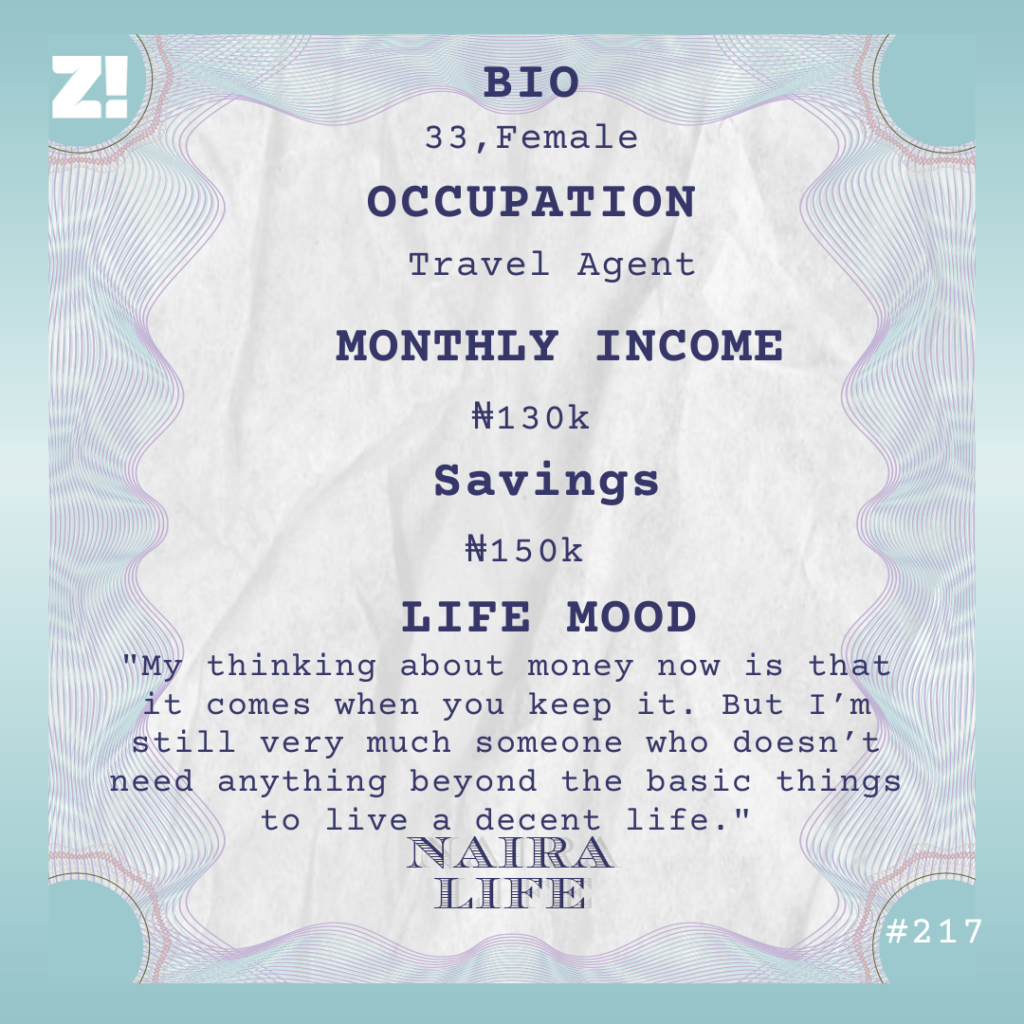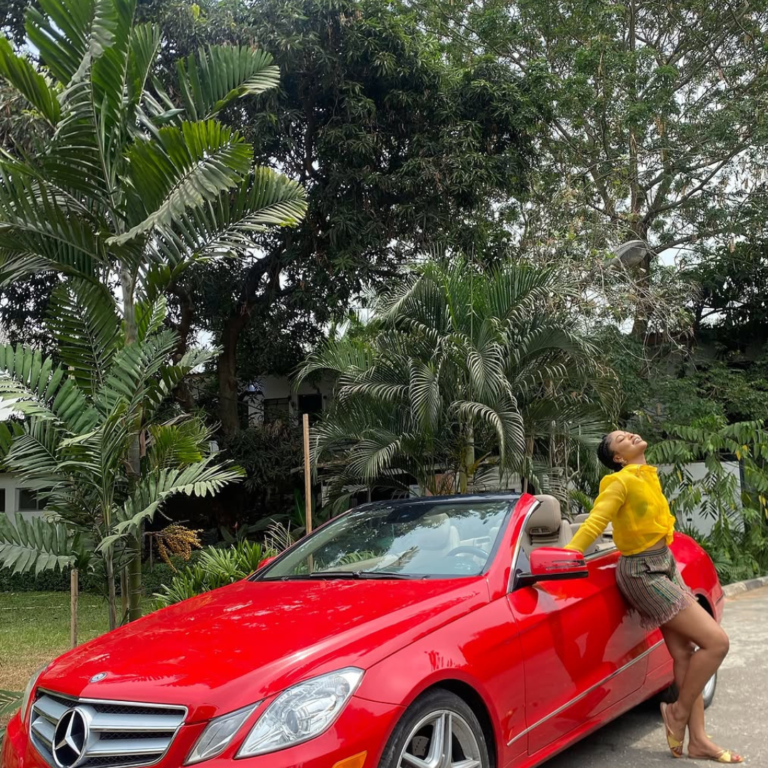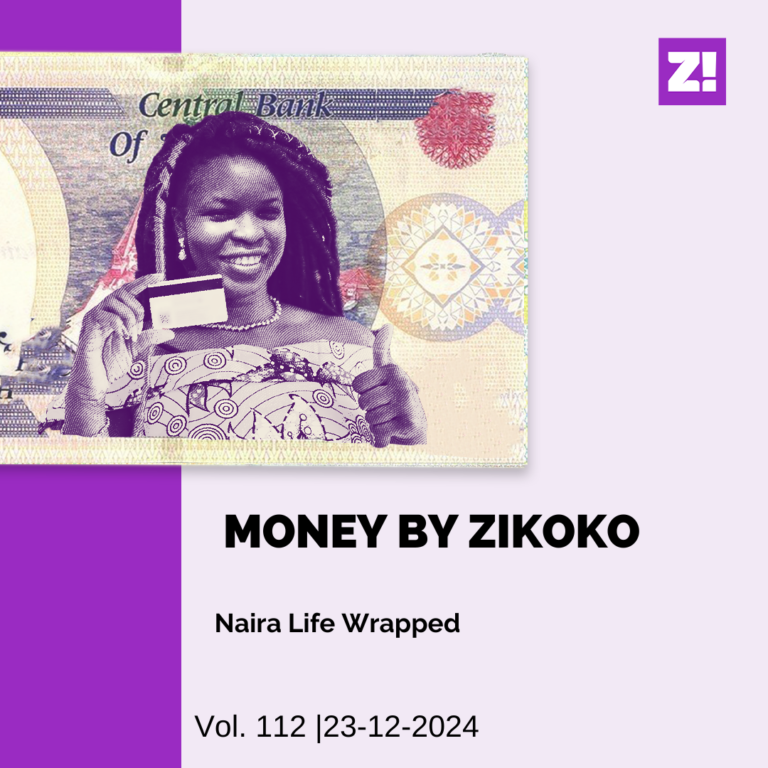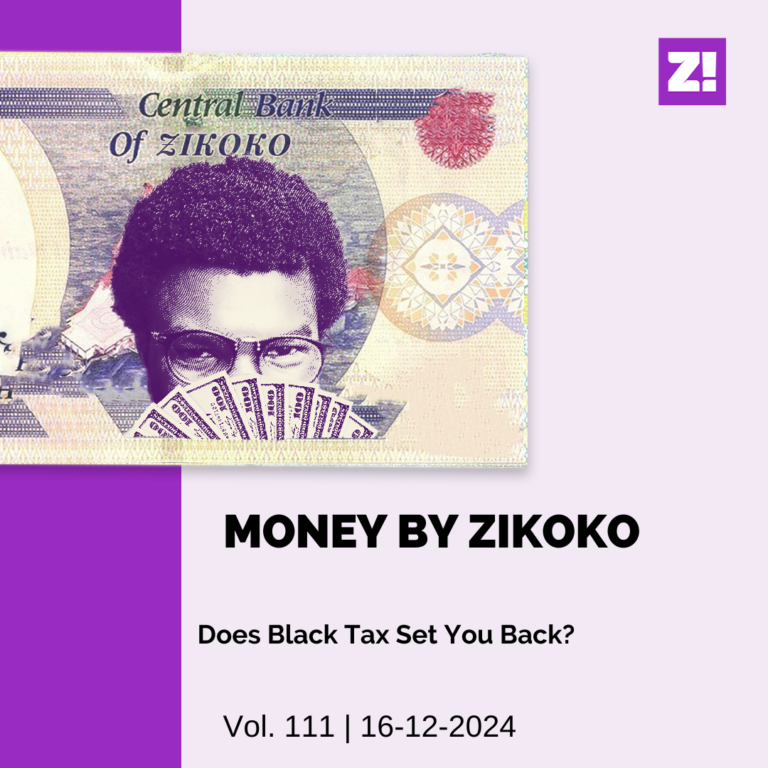Every week, Zikoko seeks to understand how people move the Naira in and out of their lives. Some stories will be struggle-ish, others will be bougie. All the time, it’ll be revealing.

Do you remember the first thing you did for money?
An internship at a radio station in 2008 and my monthly stipend was ₦5k. I was in the second year of uni and was on break when I worked here.
I interned the following year at a different radio station and was also paid ₦5k/month. My last internship was in 2010 at a bigger radio station that could afford to pay me ₦15k.
After my internships, I decided that I wanted to pursue a career in broadcasting, even though I knew a radio job wouldn’t pay me much. I don’t know if it was a lack of ambition, but I never believed I needed a lot of money to survive.
Interesting. What was your perspective about money at the time?
I don’t know that I had one. But I was always optimising for everyday necessities. Savings? What’s that? As long as I had food and clothes.
It’s funny because while my sister — my only sibling — and I grew up under the same circumstances, she had a different approach to money and looked far beyond having money for daily needs.
What do you mean?
My dad was a deadbeat, so we were raised by our mum. And she worked hard to make sure we didn’t suffer — so feeding, accommodation and our education were her priorities. The bills may be late sometimes, but she always came through.
The lesson I took from early events was that money may come and go, but I’d always survive. My strategy was to take every day as it came, and this was where my head was when I graduated from university in 2011.
What happened in 2011?
I worked as a secretary for three months at my mum’s office and my salary was ₦15k/month. Later in the year, I was mobilised to the north-central for NYSC. My first government allowance was ₦7500. Then it increased to ₦19800 the following month.
Thankfully, a friend from uni offered me a room in her parents’ house — a walking distance from the radio station where I was posted to. So accommodation was sorted for the whole, and I didn’t have transportation expenses.
How were you moving money out then?
I was sending ₦10k to my mum and ₦5k to my sister, and living on ₦4800. My favourite thing about the town where I served was how affordable the food was — my office had a restaurant where a full meal cost ₦500.
The cheap standards of living played a role in my decision to stay back after NYSC. But the radio station also chose to retain me. They thought I had the zeal and passion for radio, and it’d be their loss if I returned to Lagos.
Energy! Did you use this leverage to negotiate a salary?
I asked for ₦100k, but they could afford only ₦60k. However, my boss offered to pay me ₦20k out of his pocket, bringing my monthly income to ₦80k. The job also came with free accommodation. Overall, it was a good deal for me.
₦19800 to ₦80k in 2012. How did that feel?
Almost like I was earning a million bucks. When I got my first salary, I was just thinking, “What am I going to do with this?” When I finally dipped into it, I sent ₦40k to my mum and ₦10k to my sister.
Two months into the job as a full-time staff, my friends who were also retained and I started saving half of our salaries in a central account. But we weren’t holding for the medium or long term; the money had a very specific use.
What?
We lived close to Abuja and would go there once or twice a month to blow the money on whatever we wanted. We were a bunch of 20-somethings who just started making money, so this was a big deal.
Between 2012 and 2014, I was sending ₦20k to my mum; ₦10k to my sister; and living on ₦20k. The rest usually went on our Abuja trips.
Fascinating
In 2014, the first signs of trouble showed up at work. They slashed everyone’s salary by 50% — something about the station not making enough money anymore. Just like that, my salary was reduced to ₦30k. The situation touched my boss too, so the additional ₦20k from him also stopped coming regularly.
At some point, the station couldn’t pay our salaries every month anymore. We could go two or three months before we got one month’s salary or half salary.
I had to make some adjustments and started sending money home only when my sister needed something. The Abuja trips also stopped. But I could still cover my basic expenses because I had free accommodation and the food was cheap.
However, I felt like I had two years to prepare for the salary cuts, and I didn’t. That said, I didn’t think about leaving the radio station or the town because I liked working and living there.
Then my friends started leaving, which was depressing. Good thing that I got married in 2015.
That came out of nowhere
Haha. My husband and I met in the town in 2014. He worked in a bank and was more hands-on with his finances. While I didn’t have any savings and was living from my irregular paycheck to paycheck, he had dollar savings. We were miles apart financially.
When we got married, I was living off him and had everything I needed, except money. That I could never ask him. My dependence on him grew when we had our first child in 2016, and it was hard watching him take up everything because I was raised by an independent mum.
How was it going on the job front?
Nothing changed until I left in 2019 — my husband and I decided that it was time to return to Lagos. My husband requested a transfer, and I quit my job.
It’s wild you worked there for seven years without income growth
It’s why we had to leave. There was no real sense of growth.
Before I left, my boss paid me ₦80k — a part of what the station owed me. But I didn’t even have it in me to protest. At least I was returning to Lagos with something.
I was pregnant with my second child when we got back to Lagos, so there was no immediate pressure to find a job.
What was the cost of settling back in Lagos?
I don’t know. My husband handled the costs of moving and setting up our new home. But I know he had to dip into his savings for that. I couldn’t do much to support the process financially.
I spent the rest of 2019 casually looking for a job. The efforts intensified when my baby came in February 2020. My finances were back at zero because I spent most of the ₦80k I had during my pregnancy. So I watched helplessly as my husband picked up the bills again — the family’s monthly running cost was about ₦100k.
What was it like watching your husband be the sole breadwinner?
It’d have been easier if I wanted to be a stay-at-home mum, but I didn’t. So I was borderline depressed. Post-partum depression coupled with no job, personal income or savings wasn’t a great combination. But I bottled it all up because I wasn’t sure my husband or anyone else would understand. I mean, I had all the basic things I needed and lived a comfortable life.
I was also the broke partner, and I hated it — it was like I was close to some form of wealth and far away from it at the same time. I could never claim my husband’s money as my own.
The anxiety that came with that — not having my own money — was something.
Tell me more about that
The biggest thing I worried about was how I would navigate things if something happened to my husband, and I suddenly had to take care of two kids by myself. Where would I start?
Or what if he started to resent me because I couldn’t pick any of the weights?
But ultimately, I had to convince myself that the only thing I could control was job hunting.
Ah, right! How was it going?
When I first got back to Lagos, I was looking for radio jobs and the only one I got offered ₦80k/month. I rejected the job, which was a brave decision because I wanted to start earning. But if I took the job, I’d be spending more than half of my salary on just commuting. Lowkey, I might also have rejected the job because I still had a safety net.
No offer came after that. There was no job website I wasn’t on, and no job that I didn’t apply for. When I didn’t get interviews at media companies anymore, I started looking into teaching roles. When those didn’t work either, I turned my sights to random jobs. At some point, I applied for a driving job.
I was stuck in this process for two years before I finally got something in December 2021.
Phew. I can’t imagine your relief. What was the job about?
It was a managerial role at a food company. The salary was ₦140k/month gross and ₦130k net, even though I didn’t know about the deductions until I got my first salary.
What did it mean for you to earn money again after so long?
I could now pay for two things in the house — a nanny for the kids and the internet — and each cost ₦25k. You have no idea what it meant to be finally able to do something without my husband paying for it.
However, the job where the money came from wasn’t the best place to work. The hours weren’t flexible — I was working from 7 a.m. to 10 p.m., on most days. There was even a 3-week window where I barely saw my kids.
The place was also toxic. My boss was an asshole and would deduct money from people’s salaries over little things. During my last four months there, between ₦16k and ₦33k was deducted from my salary every month because something I don’t even remember happened in the kitchen.
But I knew I couldn’t leave until I found another job. Thankfully, I got a lifeline.
I’m listening
I applied to a travel company in 2021, but it didn’t work out. Out of the blue, they reached out to me in the middle of 2022 to fill a vacant role. The salary was ₦140k net — just a little over what I was earning at the food company but I took it.
I started the job in August 2022.
Sweet. What do you do for them?
The company helps clients — usually corporate entities — apply for visas for their staff. I’m a visa agent, and my job is to fill out the forms, gather all necessary documents and ensure that the applications look good. The company charge a service charge for this, which is between ₦50k and ₦250k depending on how hard it is to get the visa.
Visa applications to the UK, US, and the Schengen area fall into ₦250k category, and it’s how I make more money; I get a 10% commission on each application. On average, I make ₦100k/month in commissions, which the company pays out every three months. My commissions are lumpsum payments.
Ah! When did you get the first one?
₦400k in October 2022. The bank restricted my account because I’d never received such money at once. But once it was clear, I went shopping for some things I’d always wanted to buy in the house but didn’t want to ask my husband. I also saved ₦100k.
The next commission came in February, and the next one should come in a few weeks.
I’m curious what the dynamics between you and your husband are like now
He still earns more money and handles the major bills, especially things around feeding the children and housekeeping. But now, I can pick up some random bills that come up each month. And I love that he asks me to do them, too. It could be paying for extra power units if we run out or buying groceries. I’m very happy to do all this and particularly enjoy how it’s made me feel about a lot of things. Finally, it feels like I have a stake in running our home.
So where does your money typically go these days?

I save from my commissions and currently have about ₦150k in my savings. My current struggle is that I haven’t worked out how to plan my savings and stick to them. Once the lumpsum payments come, a thousand things to spend money on show up. Even if I draw up a plan and stick to it, I still end up dipping into my savings for random expenses. Need to fix that.
Do you have a savings goal at the moment?
I’m looking to have ₦500k in my account at the end of the year. I’ll be a very happy person if this happens.
I feel like I’ve been in the initial stage when someone has the urge to spend on everything they see when they just come into money. The excitement of having a consistent income is wearing off now, and I’m beginning to pace myself.
How have your experiences shaped your thinking about money?
Growing up, I didn’t think money was anything important. I didn’t make it a part of my life, which is why I didn’t get a hang of it earlier. As a result, I didn’t have anything of my own to fall back on during the years of drought. So my thinking about money now is that it comes when you keep it.
But I’m still very much someone who doesn’t need anything beyond the basic things to live a decent life.
On a scale of 1-10, how would you rate your financial happiness?
It’s been a rollercoaster over the years. It started at 5, then went down to 2, and I was stuck here for years. Now I’m at a 7. I don’t think I’m earning poorly. And for the first time in my life, I have money saved up somewhere. The remaining 3 is because there’s room for improvement, but I’m confident that I’d hit 10 at some point.
If you’re interested in talking about your Naira Life story, this is a good place to start.
Find all the past Naira Life stories here.





